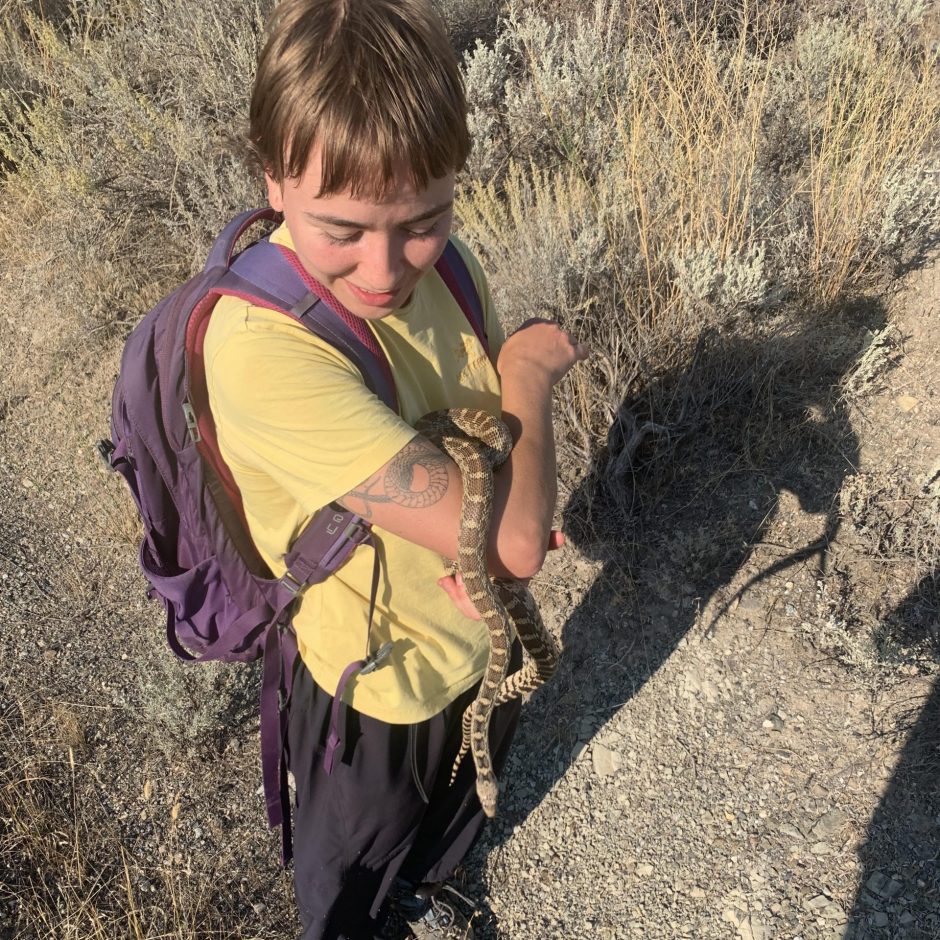
Bryna Turk
Bryna Turk’s Story
What experiences have you had with the AWP?
In APBI 495 (Human Wildlife Conflict), I was part of a team of students who monitored bird-window collisions at the UBC Botanical Garden in order to understand which window facades offered more significant threats to resident and migratory birds and why, so they could eventually be mitigated with bird-friendly window applications (some of which were actually implemented!). I loved feeling like the data we collected and analyzed was actually going to be used to make a difference.
In APBI 497, I participated in a directed studies project with Dr. Sasha Protopopova and Bailey Eagan to investigate the effects of climate variables like temperature and precipitation on kitten intake to BCSPCA locations across the province. It was really valuable to gain some insight into the process of large-scale data analysis and the problem-solving that comes with it!
How did these experiences lead you to other opportunities?
My work with Sasha and Bailey got me thinking more about the relationships between human and animal welfare, and I was inspired to produce a podcast about pet-friendly housing in Vancouver for the class LFS 400 (Audio Storytelling). This podcast was a great lesson in making scientific content accessible and interesting to the public, while connecting with very different perspectives on the issue.
Have a listen below:
What other experiences have you had that are not based on courses but are related to animal welfare?
My experience in APBI 495 pushed me to take a job with a local nonprofit involved with wildlife and species at risk. With the help of local biologists, veterinarians, and the BCSPA, we used previous data on domestic cat density in Vancouver to create and implement targeted outreach and raise awareness about the impacts of outdoor roaming cats on wildlife populations from a combined animal welfare and wildlife conservation approach.
Although not affiliated with UBC, I also recently had the opportunity to work as a snake monitoring field technician with a lab at Thompson Rivers University. I spent about a month helping masters students record data on local snake populations, primarily the northern pacific rattlesnake. I applied my background in compassionate conservation from APBI 416 to offer a unique animal welfare perspective on the field team and gain a more nuanced perspective on how researchers can emphasize the role of animal welfare in their conservation work. My old boss was previously involved with the program and referred me because she knew I had a background in animal husbandry and welfare and was interested in conservation field work – talk about the importance of making connections!
What advice would you have to tell other undergraduate students who are interested in gaining experience?
I think it can be important to wear your heart on your sleeve and be vocal about what topics excite you, or what opportunities you’d be genuinely passionate to pursue. Your energy and enthusiasm might make you stand out as the perfect fit for a role!
Courses like APBI 497 are open to non-APBI students. Consult the wiki page to learn more about the application process. You will see more about how to reach out to potential supervisors! LFS 400 is a unique seminar course open to all upper-year students interested in learning about utilizing audio storytelling for science communications. Learn more about this course and listen to past students’ projects here.